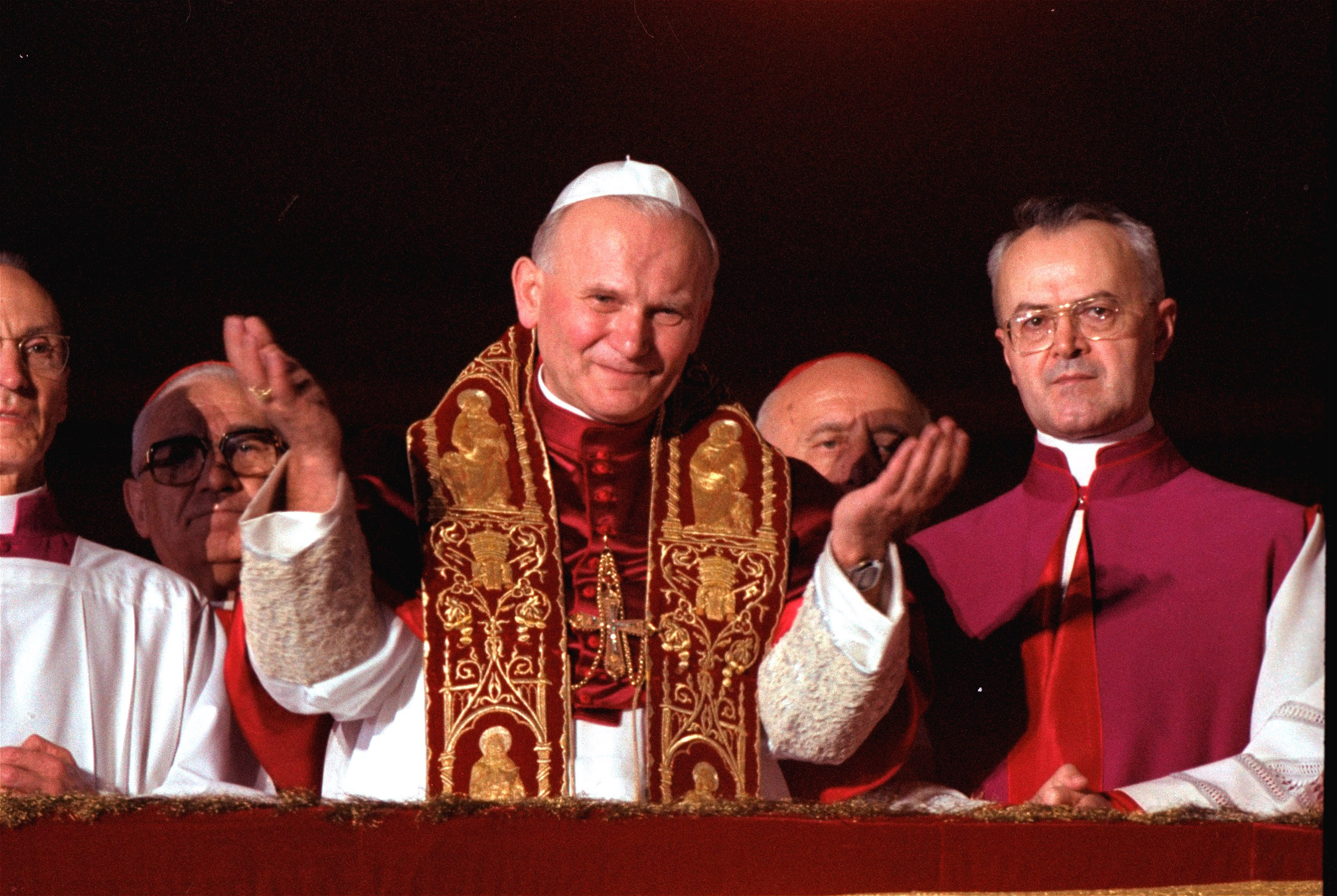On the occasion of the 100th anniversary of the late John Paul II’s birth, it’s worth underscoring that one theme which permeated his pontificate from its beginning to the end was that of truth.
Many remember Pope John Paul II as playing a crucial role in Eastern Europe’s liberation from Marxist tyranny. But he also insisted that liberty needed to be grounded in and guided by the truth knowable via reason and faith. If freedom and truth become separated—as they most certainly have in many people’s minds in our own time—we not only end up with an unhealthy and dangerous association of liberty with moral relativism. We also open the door to those who claim that the truth is whatever the most powerful or the loudest say it is.
This idea was most thoroughly explored by the late pope in what I regard as his important encyclical, Veritatis Splendor [The Splendor of Truth] (1993). But the particular implications of this theme for the economy and the relationship between economics and culture were discussed at length in John Paul’s 1991 social encyclical Centesimus Annus.
At a 1996 conference sponsored by the Acton Institute, the Jesuit priest and theologian Avery Dulles (the convert son of Secretary of State John Foster Dulles and nephew of CIA director Allen Dulles) delivered a paper which, in my estimation, was particularly incisive in its treatment of Centesimus Annus’s analysis of the relationship between liberty, truth, culture and the economy. Entitled “Centesimus Annus and the Renewal of Culture” and later published in the Journal of Markets and Morality, the theologian who would later be made a cardinal by John Paul II in 2001 underscored that if market economies are not rooted in a culture that took philosophical and religious truth seriously, economic life can generate some decidedly mixed results.
Drawing heavily on another prominent American theologian, the late Michael Novak (who himself wrote a book-length commentary on Centesimus Annus), Cardinal Dulles commented:
The principal message of Centesimus Annus, as I read it, bears not on politics and economics in themselves but rather on culture as the sustainer of both. John Paul II calls, above all, for a restoration of the order of culture, with its transcendent horizons and its disinterested concern for the true, the beautiful, and the good. Only when we have citizens who are concerned with these transcendent values can we overcome the tendency to put profits ahead of people and self-indulgence ahead of responsible service. A lived relationship to the transcendent can foster the self-control, the spirit of service and sacrifice, that are requisite for a workable free society and a corresponding free market economy. Without these cultural attitudes there can be no culture of peace, no civilization of love.
Centesimus Annus is often praised—rightly, in my view—for being the modern social encyclical most attentive to economics as a social science. This owed much to John Paul II’s willingness to meet and have serious discussions with prominent economists who themselves occupied a variety of positions on the economic policy spectrum while the encyclical was being drafted.
Dulles’ point, however, was that perhaps Centesimus Annus’s most significant contribution to religious thinking about economic questions was to underscore the importance of culture—by which was meant the moral values and commitments prioritized by a given society—for the contours assumed by economic life. If, for example, a free economy is rooted in hedonist, utilitarian or consequentialist accounts of morality, the ethical content of many people’s economic choices will likely be quite different to those who live in a culture in which truth and beauty are recognized as having objective moral content that goes far beyond pleasure and feelings.
“Both politics and economics,” Dulles concluded, “have their matrix in culture.” That’s a truth, heavily underlined by John Paul II, whose relevance is eternal.
(Photo credit: Associated Press)
